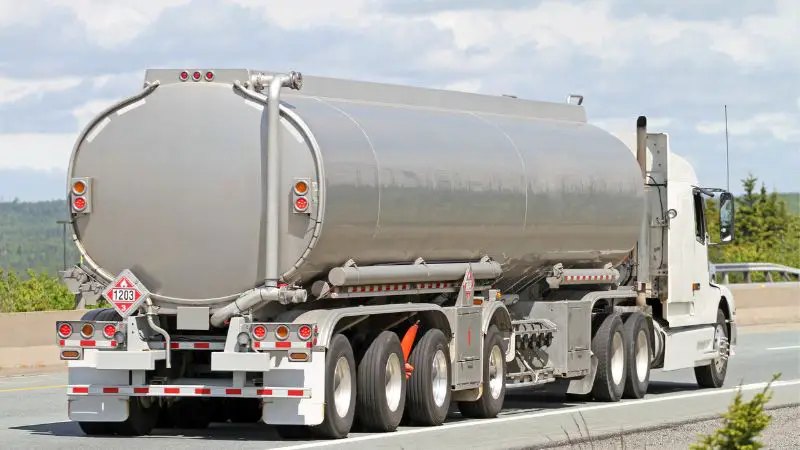Oil and fuel are both two extensively used natural resources. These two are crucial and necessary to assist humankind with its energy needs.
Although oil is a type of fuel, they have quite different definitions. Likewise, with the rising and falling fuel prices, oil, and crude oil, it cannot be apparent to understand the difference between them. But don’t worry; this article will help you to differentiate between them.
What Is Fuel
Fuels are described as any element that contains potential energy in the form of heat energy. At the same time, the thermal energy from the material is used as mechanical energy by an engine.
Also, you can define it as a substance capable of performing mechanical work by releasing power, which humans control. Such energy is categorized as fuel.
What Is Oil
Oil, on the other hand, is specified as any neutral, nonpolar chemical substance. And it’s a thick fluid at ambient temperature. But here, the oil is referred to as used and crude oil, called crude oil or petroleum. Petroleum is specified as a naturally occurring liquid fossil fuel composed of a variety of hydrocarbons and other organic compounds. And it can be found on the Earth’s surface.

Difference Between Fuel Vs. Oil
The main difference is that oil is a fuel that releases energy to perform work. Moreover, the critical difference between them is based on their preparation method, ingredients, and types.
Although maximum fuels are non-renewable, some renewable sources like animals, biofuels, and plants exist. In contrast, oil is the most widely used and considered the most dependable energy source. But oil is rapidly depleting and non-renewable.
Not all fuels are oil-based, nor are all oils fuel. Oil is generally a viscous liquid, but the oil found below the Earth’s surface is of interest to humankind. There are fuels in the form of biofuels and nuclear fuels—crude oil sources petroleum, diesel, kerosene, and many other chemicals.
Fuel oils are yellow to light brown liquid blends delivered from crude petroleum through various refining processes. They usually smell like kerosene and are flammable. These oils are formulated of a complex and inconsistent variety of aliphatic and aromatic hydrocarbons.
Besides this, it contains low percentages of nitrogen, sulfur, and oxygen compounds. The proper chemical composition can vary depending on the source, refinery, and other factors. Weathering and biological changes may further influence this composition in the environment. Fuel oil generally has two main types: distillate fuel oil and residual fuel oil.
What Is the Difference Between Residual And Distillate Fuel Oils?
Distillate oil is a light fuel oil that is more refined than heavy oil. Examples are fuel oil and diesel fuel. Residual oil is the oil residue that remains after distilling lighter grades of material.
Distillation Fuel oils evaporate and condense during the distillation process. And thus have a fixed boiling range and don’t contain high-boiling components. Residual fuel oils consist of residues from the crude distillation of thermal cracking.
These oils are generally extra complex in composition and contaminants than distillate fuel oils. The American Society for Testing and Materials (ASTM) D396 standard divides fuel oils into various classes.
Difference Between Oil And Gas” In Cars
The difference between oil and gas is that oil is a mix of hydrocarbon and liquid at room temperature. In contrast, gas is a mixture of gasses from fossils buried deep in the Earth. You can find the gas with oil or may be found alone.
Oil contains high density and spreads at a low rate, whereas gas has low density and viscosity. Hence, oil is an unusually flammable substance insoluble in water, whereas gas is a gaseous liquid.
Oil has different compositions and types, like mineral oil, shale oil, and crude oil. Gas combines many other gasses for cooking, heating, power generation, and drying clothes. Is oil called fuel? Yes. Oil and gas are both used as fuels.
Compared to oil, gas gives off a lot of heat and light but doesn’t create smoke. Yet, it burns hotter, cleaner, and brighter than fossil fuels like coal and oil. It has become the first choice as fuel for every car owner. A gas supply is reliable, and gas pipes have safely underground.
Difference Between Crude Oil And Natural Gas
Crude oil and natural gas are both fossil fuels consisting of animals and plants that have died over thousands of years. They are both used as a source of heat, producing energy.
Furthermore, they both are composed of various hydrocarbons. So, what’s the difference between them? The most significant difference between them is molecular makeup.
Crude oil consists of a wide and varied selection of complex hydrocarbons. Because of its complicated makeup, crude oil comes in many forms, and its viscosity and volatility can vary widely. Because crude oil has its unique mix of chemicals, it needs total refining to use commercially.
Natural gas also has various hydrocarbons, like propane, ethane, butane, and pentane. Nevertheless, the most significant benefit of natural gas is its main element is the reasonably simple hydrocarbon methane. This simple structure makes refining natural gas for commercial use much more accessible. Finally, they differ in their benefits and costs.
Final Word:
In short, crude oil and petroleum are used interchangeably to refer to hydrocarbon fossil fuels. Crude oil is a liquid hydrocarbon collection that nature creates from the ground as nature makes them. Gas and engine fuel are commonly used interchangeably for hydrocarbons refined from crude oil.
The length of the hydrocarbon molecule chains that make up these compounds. Gas and natural gas contain short molecules. Gasoline molecules are long, asphalt is longer, and crude is a mixture and their sources. However, here we are discussing the difference between oil vs. fuel. We hope you get the proper information about them. Thanks for staying with us.
